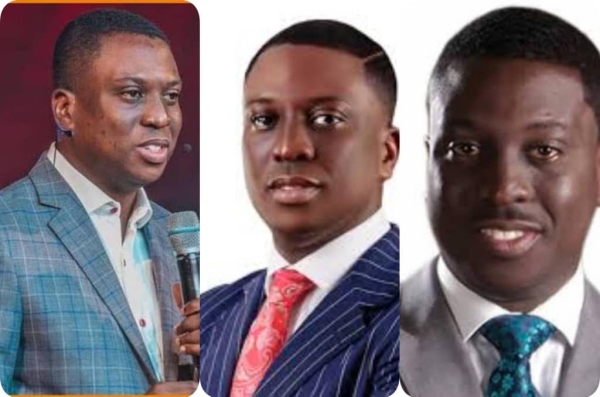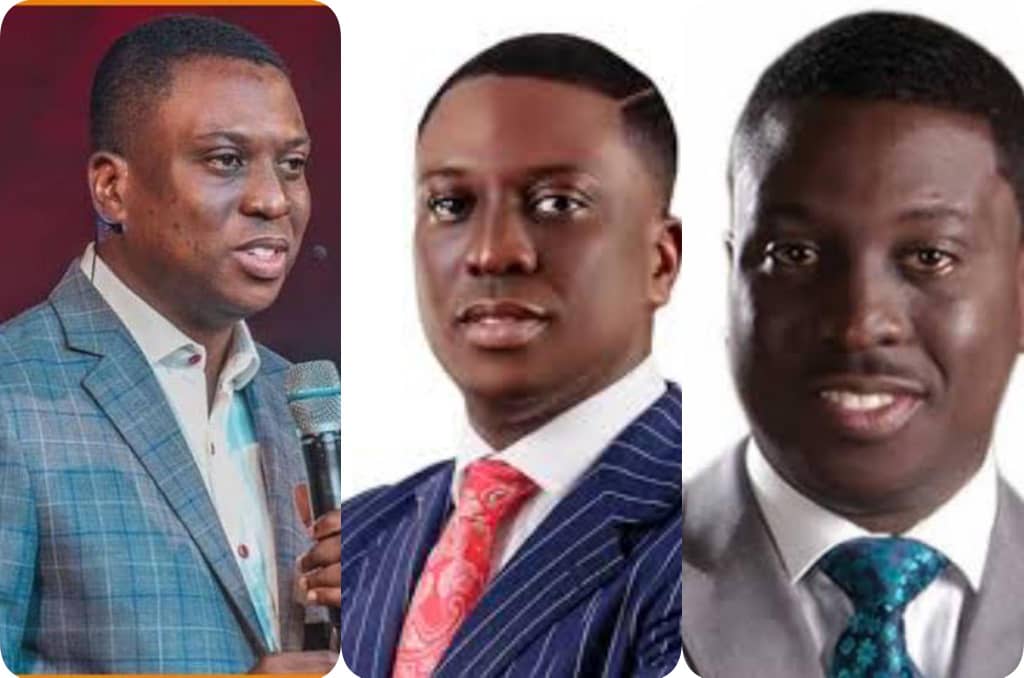News And PoliticsCommunications And EntertainmentSports And FitnessHealth And LifestyleOthersGeneralWorldnewsBusiness And MoneyNigerianewsRelationship And MarriageStories And PoemsArts And EducationScience And TechnologyCelebrityEntertainmentMotivationalsReligion And PrinciplesNewsFood And KitchenHealthPersonal Care And BeautyBusinessFamily And HolidaysStoriesIT And Computer ScienceSportsRelationshipsLawLifestyleComedyReligionLifetipsEducationMotivationAgriculturePoliticsAnnouncementUSMLE And MedicalsMoneyEngineeringPoemsSocial SciencesHistoryFoodGive AidBeautyMarriageQuestions And AnswersHobbies And HandiworksVehicles And MobilityTechnologyFamilyPrinciplesNatureQuotesFashionAdvertisementChildrenKitchenGive HelpArtsWomenSpiritualityQuestions AnsweredAnimalsHerbal MedicineSciencePersonal CareFitnessTravelSecurityOpinionMedicineHome RemedyMenReviewsHobbiesGiveawayHolidaysUsmleVehiclesHandiworksHalloweenQ&A
Top Recent
Loading...
You are not following any account(s)
dataDp/1032.jpeg
Worldnews

Taiwans Chip Giant TSMC To Spend $100bn To Expand US Chip Manufacturing
~1.9 mins read
TSMC CEO announced the plan with US president, the latest firm to make investment commitments since Donald Trump took office. Chip giant Taiwan Semiconductor Manufacturing Co plans to invest $100bn in the United States and build five additional factories in the coming years, it has said. TSMC CEO CC Wei announced the plan on Monday in a meeting at the White House with US President Donald Trump. “We must be able to build the chips and semiconductors that we need right here,” Trump said. “It’s a matter of national security for us.” TSMC, the world’s largest contract chipmaker, is a leading supplier to major US firms including Apple, Intel and Nvidia. The $100bn outlay, which would boost domestic production and make the US less reliant on semiconductors made in Asia, is in addition to a major prior investment announcement. TSMC agreed in April to expand its planned US investment by $25bn to $65bn and to add a third Arizona factory by 2030. Former US President Joe Biden in 2022 signed a sweeping $280bn law, the CHIPS and Science Act, to try to reinvigorate chip manufacturing in the US, especially after the COVID-19 pandemic. It included a subsidy for TSMC’s US unit in Phoenix, Arizona. During the pandemic, chip factories, especially those overseas making the majority of processors, shut down. This had a ripple effect that led to wider problems, such as shutting down automobile factory assembly lines and fuelling inflation. Trump has criticised the law and taken a different approach, instead threatening to impose high tariffs on imported chips to bring chip manufacturing back to the US. Trump also has said companies like TSMC do not need federal tax incentives. Trump has hosted multiple business leaders at the White House since he took office in January to tout a series of investments that aim to demonstrate his leadership is a boon for the US economy. In February, Apple said it would invest $500bn in the next four years. Emirati billionaire Hussain Sajwani and SoftBank also have promised multibillion-dollar investments in the US. TSMC said on Monday that it looks “forward to discussing our shared vision for innovation and growth in the semiconductor industry, as well as exploring ways to bolster the technology sector along with our customers”. Under Biden, the US Department of Commerce convinced all five leading-edge semiconductor firms to locate factories in the US as part of the programme to address national security risks from imported chips. Trump’s Commerce Secretary Howard Lutnick told lawmakers last month that the programme was “an excellent down payment” to rebuild the sector, but he has declined to commit grants that have already been approved by the department, saying he wanted to “read them and analyse them and understand them”. Follow Al Jazeera English:...
Read this story on Aljazeera
dataDp/1032.jpeg
Worldnews

LIVE: Israel Kills Two In Gaza, Trump Envoy To Return To Middle East
~0.2 mins read
Hamas says Israel’s blockade is ‘collective punishment’ as Netanyahu threatens consequences ‘you cannot imagine’ if captives not released. Voices of Gaza: Family breaks fast on rubble in Jabalia, fearing famine’s return amid Israel’s war Follow Al Jazeera English:...
Read this story on Aljazeera
profile/8302images3.jpeg.webp
Gistlegit

"Experience The Viral Energy Of Next Level Prayers Transforming Lives Through Digital Evangelism."
~1.1 mins read

Pastor Bolaji Idowu, the dynamic leader of the Next Level Prayers network, has once again captured public attention with a viral moment that has sparked widespread conversation across social media platforms. Known for his passionate preaching and powerful prayer sessions, Pastor Idowu’s influence continues to grow, drawing thousands to his online and in-person services.
The recent viral clip, which has been widely shared, showcases his unique ability to connect with believers through faith-filled declarations and uplifting messages. His impact, particularly among young Christians, has positioned him as a leading voice in modern-day evangelism.
As reactions pour in from across the globe, Pastor Bolaji Idowu remains committed to his mission of empowering lives through prayer, faith, and spiritual growth. His Next Level Prayers movement continues to be a beacon of hope for many seeking divine breakthroughs.
Social Media Reactions
The viral moment has ignited discussions, with many praising his energy and dedication to spreading the gospel. Some have shared testimonies of transformation through his ministry, while others have highlighted his innovative approach to digital evangelism.
With his growing influence, Pastor Bolaji Idowu’s reach extends beyond the pulpit, solidifying his place as a key figure in contemporary Christian ministry.
*Watch Video:*
dataDp/1032.jpeg
Worldnews

Ukraine Prolongs Martial Law Amid Russian Air Attacks, Heavy Ground Battles
~2.0 mins read
The measure enables Ukraine to further delay elections, despite pressure for a presidential vote from the US and Russia. Ukraine’s parliament has voted to extend martial law and military mobilisation for another three months, prolonging the wartime measures until at least August 6. Lawmaker Yaroslav Zheleznyak said the extension of martial law passed by a 357-1 vote, while a measure to maintain troop mobilisation was approved 356-1. Under Ukraine’s constitution, elections cannot be held during martial law – a provision that remains in effect despite external calls, including from Russia and the United States, for a timeline on a future vote. Russia’s President Vladimir Putin has repeatedly questioned the legitimacy of his Ukrainian counterpart, Volodymyr Zelenskyy, whose five-year term was originally due to end in May last year, and even raised the prospect of a temporary United Nations-backed government to lead Ukraine to elections. Reacting to the martial law extension, Kremlin spokesman Dmitry Peskov accused Kyiv of trying to “preserve its unstable structure”. In February, US President Donald Trump described Zelenskyy as a “dictator without elections”, prompting Ukrainians to rally around their leader and boosting his approval ratings. As peace talks led by the Trump administration created hopes for a potential ceasefire and eventual elections, some Ukrainian opposition politicians have grown more vocal in their criticism of Zelenskyy. Still, there is broad support for maintaining martial law. Petro Poroshenko, a former president and leader of the country’s largest opposition party, said there was no doubt martial law should be prolonged, but accused Zelenskyy of attempting to use the measure to shore up his powers. “I want to stress that we should recognise the obvious – the government has started to abuse martial law, using it not only to defend the country, but to build an authoritarian regime,” Poroshenko said during parliamentary debates on Tuesday. The martial law vote came as heavy fighting and air attacks continued between Russia and Ukraine, now in the 38th month of gruelling war. An overnight Russian drone attack on the Black Sea port city of Odesa injured three people and damaged homes, while various morning air and artillery attacks killed at least one person in the southern city of Kherson, according to Ukrainian officials. Meanwhile, the Russian military said its forces captured the eastern Ukrainian village of Kalynove, another small claimed advance in the embattled Donetsk region. The Russian Ministry of Defence also accused Ukraine of carrying out six attacks on the country’s energy infrastructure, despite a mutually-agreed 30-day moratorium on such strikes. It is unclear if the pause on attacks on energy infrastructure, due to expire on Wednesday, will be extended. “We’ll keep you informed. I am not yet ready to tell you what decision has been made,” Peskov told reporters when asked about whether Russia would extend the moratorium. Follow Al Jazeera English:...
Read this story on Aljazeera
Loading...
 Worldnews
Worldnews
 Gistlegit
Gistlegit